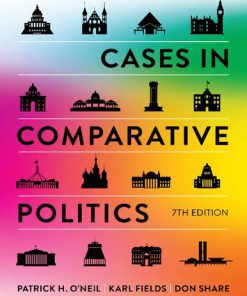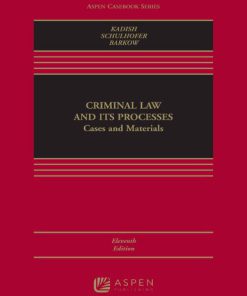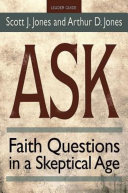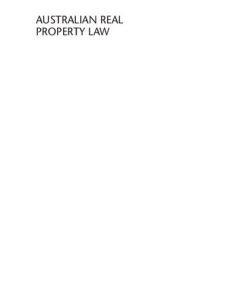Criminal Law in Canada Cases Questions and the Code 7th Edition by Simon Verdun Jones ISBN 9780176724412 0176724419
$50.00 Original price was: $50.00.$25.00Current price is: $25.00.
Criminal Law in Canada Cases Questions and the Code 7th Edition by Simon Verdun Jones – Ebook PDF Instant Download/Delivery: 9780176724412 ,0176724419
Full download Criminal Law in Canada Cases Questions and the Code 7th Edition after payment
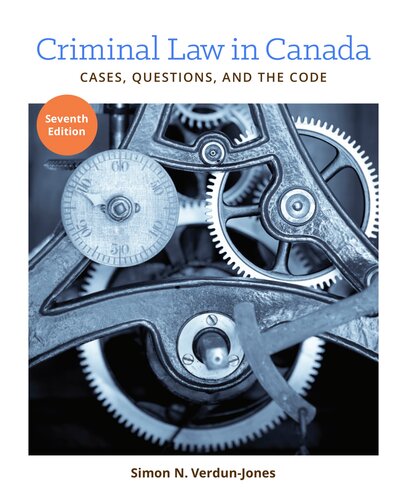
Product details:
ISBN 10: 0176724419
ISBN 13: 9780176724412
Author: Simon Verdun Jones
Criminal Law in Canada Cases Questions and the Code 7th Edition Table of contents:
CHAPTER 1: Introduction to Canadian Criminal Law
WHAT IS CRIMINAL LAW?
The Definition of Crime in Canada
True Crimes and Regulatory Offences
CRIMINAL LAW AS A FORM OF PUBLIC LAW
THE SOURCES OF CRIMINAL LAW IN CANADA
Federal Legislation
Quasi-Criminal Law: Regulatory Offences and the Constitution
Problems of Jurisdiction in the Enactment of Legislation
Judicial Decisions as a Source of Criminal Law
THE IMPACT OF THE CANADIAN CHARTER OF RIGHTS AND FREEDOMS ON THE CRIMINAL LAW IN CANADA
CHAPTER 2: The Actus Reus Elements of a Criminal Offence
INTRODUCTION
THE ACTUS REUS AS A COMBINATION OF CONDUCT, CIRCUMSTANCES, AND CONSEQUENCES
EXCEPTIONS TO THE GENERAL RULE REQUIRING CONDUCT, CIRCUMSTANCES, AND CONSEQUENCES
Offences Where Consequences are not a Required Element of the Actus Reus
Offences Where Conduct Is not a Required Element of the Actus Reus
CAN A FAILURE TO ACT CONSTITUTE A CRIMINAL OFFENCE?
The General Principle: No Liability for Omissions Unless There is a Preexisting Duty to Act
Voluntarily Assuming a Legal Duty under Section 217 of the Criminal Code
SPECIFIC LEGAL DUTIES IMPOSED BY THE CRIMINAL CODE
The Duty to Provide the Necessaries of Life to Dependent Persons
Criminal Negligence, Manslaughter, and Failure to Act
Is There a Duty to Act When a Person Creates a Dangerous Situation by Accident?
Should There Be a Duty to Rescue?
When a Failure to Act May Render an Accused Person Liable as a Party to an Offence Committed by Another Person
The Need for the Actus Reus and Mens Rea to Coincide
The Element of Voluntariness in the Actus Reus
CHAPTER 3: Causation in the Criminal Law
CAUSATION IN CRIMINAL LAW
Specific Rules Concerning Causation in Homicide Cases
CHAPTER 4: The Mental Element in the Criminal Law: Subjective Liability
MENS REA: AN INTRODUCTION
SUBJECTIVE AND OBJECTIVE MENS REA
Particular Forms of Subjective Mens Rea
The Concepts of Intention and Knowledge
Special Mental Elements That Must Be Proved in Addition to Intention and Knowledge
The Distinction between Direct and Indirect Intention
Intention and Motive Distinguished
The Concept of Transferred Intent
RECKLESSNESS AS A FORM OF SUBJECTIVE MENS REA
Definition of Recklessness
Examples of Criminal Code Offences Requiring Proof of Recklessness
WILFUL BLINDNESS AS A FORM OF SUBJECTIVE MENS REA
Examples of Wilful Blindness
SUBJECTIVE MENS REA AS A CHARTER REQUIREMENT: THE CASE OF MURDER
Impact of the Charter on the Doctrine of Mens Rea
The Charter Requirement of Subjective Mens Rea and Section 229(c) of the Criminal Code
CHAPTER 5: The Mental Element in the Criminal Law: Objective Liability
WHAT IS OBJECTIVE LIABILITY?
OFFENCES IMPOSING OBJECTIVE LIABILITY
Driving Offences and Objective Liability
Dangerous Driving and Criminal Negligence
Unlawful Act Manslaughter
The Offences of Unlawfully Causing Bodily Harm and Assault Causing Bodily Harm
The Offence of Aggravated Assault
Offences Involving Criminal Negligence
CAUSING DEATH BY CRIMINAL NEGLIGENCE AND MANSLAUGHTER BY CRIMINAL NEGLIGENCE: IDENTICAL TWINS
INFANTICIDE
CRIMINAL CODE SECTIONS IMPOSING A SPECIAL STANDARD OF CARE
1. Reasonable Medical Treatment—Section 216
2. The Duty to Take Reasonable Care in the Handling of Explosives and Firearms—Sections 79 and 86(1)
CHAPTER 6: The Special Case of Regulatory Offences: Strict and Absolute Liability in Canada
INTRODUCTION
REGULATORY OFFENCES AND ABSOLUTE LIABILITY
THE ARGUMENTS FOR AND AGAINST ABSOLUTE LIABILITY
THE EMERGENCE OF THE “HALFWAY HOUSE” APPROACH
The Supreme Court Endorses the “Halfway House” Approach: The Sault Ste. Marie Case (1978)
The Three Categories of Offences Since the Sault Ste. Marie Case (1978)
The Facts in the Sault Ste. Marie Case (1978)
THE CLASSIFICATION OF REGULATORY OFFENCES: STRICT OR ABSOLUTE LIABILITY?
1. The Importance of Examining the Overall Regulatory Pattern in a Statute
2. The Importance of Examining the Subject Matter of the Regulatory Offence
3. The Importance of the Penalty in Determining Whether a Regulatory Offence Imposes Strict or Absolute Liability
4. The Importance of Examining the Precise Wording of Regulatory Legislation
STRICT LIABILITY OFFENCES AND RAISING THE DEFENCE OF DUE DILIGENCE
IS STRICT LIABILITY A VALID DEVICE UNDER THE CHARTER?
THE CHARTER AND ABSOLUTE LIABILITY OFFENCES
CHAPTER 7: Modes of Participation in Crime and Inchoate Offences
INTRODUCTION
THE VARIOUS MODES OF PARTICIPATION IN A CRIMINAL OFFENCE
Actually Committing an Offence
Aiding and Abetting the Commission of an Offence
Becoming a Party to an Offence by Virtue of Common Intention
COUNSELLING AN OFFENCE THAT IS ACTUALLY COMMITTED
Liability as an Accessory after the Fact
The Impact of Section 23.1 of the Criminal Code
INCHOATE OFFENCES
1. Counselling an Offence That Is Not Committed
2. Attempt
3. Conspiracy
CHAPTER 8: Mental Impairment and Criminal Responsibility: The Defences of “Not Criminally Responsible on Account of Mental Disorder” (NCRMD) and Automatism
INTRODUCTION
THE ISSUE OF FITNESS TO STAND TRIAL
THE DEFENCE OF NOT CRIMINALLY RESPONSIBLE ON ACCOUNT OF MENTAL DISORDER
The M’Naghten Rules
The Modern NCRMD Defence in Canada
The Capacity of the Accused Person to Appreciate the Nature and Quality of the Act or Omission
The Capacity of the Accused Person to Appreciate That the Act or Omission Was Wrong
The Problem of Irresistible Impulse
MISCELLANEOUS PROCEDURAL ISSUES
The Power of the Crown to Raise the Mental Disorder Defence
The Burden and Standard of Proof When the Defence of NCRMD Is Raised
THE DISPOSITION OF NCRMD ACCUSED PERSONS
Right of the NCR Accused Person to Appeal
Criteria for Making Decisions About the Disposition of NCR Accused Persons
The “High-Risk Accused” Designation
Mental Disorder as a Partial Defence
AUTOMATISM
Definition of Automatism
Automatism Caused by “Normal” States Such as Sleepwalking
Automatism Triggered by an External Trauma
Automatism Involuntarily Induced by Alcohol or Other Drugs
Automatism Voluntarily Self-Induced by Alcohol or Other Drugs
Automatism Distinguished from Amnesia
Automatism Caused by a Mental Disorder
The Definition of Mental Disorder: Problems of Judicial Interpretation
Psychological Blow Automatism
Automatism and the Persuasional Burden of Proof
Automatism and the Evidential (or Evidentiary) Burden
CHAPTER 9: Mistake of Fact, Consent, and Mistake of Law as Defences to a Criminal Charge
INTRODUCTION
MISTAKE OF FACT
Mistake of Fact: The General Nature of the Defence
Exceptions to the General Rule That a Mistake of Fact Does Not Have to Be Reasonable in Order to Excuse the Accused Person from Criminal Liability
Intoxication and the Defence of Honest Mistake of Fact
When Can the Defence of Mistake of Fact Be Considered by the Trier of Fact?
How “Honest” Must a Mistake of Fact Be?
CONSENT
The General Principles
Consent and Assault under Section 265
Special Provisions Relating to the Defence of Consent in Relation to a Charge of Sexual Assault
Can an Individual Consent to the Infliction of Bodily Harm?
Consent to the Infliction of Bodily Harm in the Context of Sporting Activity
MISTAKE OF LAW
The General Principle: Mistake of Law Is Not a Defence
The Evolution of a New Defence or “Excuse”: Officially Induced Error
Mistake of Law and “Colour of Right”
CHAPTER 10: Provocation and Intoxication: Partial Defences to a Criminal Charge
PROVOCATION AND INTOXICATION
PROVOCATION
The General Nature of the Defence and Section 232
Requirement 1: Conduct of the Victim That Would Constitute an Indictable Offence under This Act That Is Punishable by Five or More Years of Imprisonment and That Is of Such a Nature as to Be Sufficient to Deprive an Ordinary Person of the Power of Self-Control
Requirement 2: A Wrongful Act or Insult That Was Sudden and Unexpected
Requirement 3: A Wrongful Act or Insult That in Fact Caused the Accused to Act in Anger
Requirement 4: The Accused Acted before Having Recovered Their Normal Self-Control
“Legal Right” in Section 232(3)
The Differing Roles of Judge and Jury in Canada When Provocation Is Raised
INTOXICATION
Historical Overview of the Defence
The Evolution of the Beard Rules: 1920 to the Present
The First Beard Rule: Intoxication That Causes a “Disease of the Mind”
Applying the Second and Third Beard Rules: The Critical Distinction between Crimes of Specific and General (Basic) Intent
Applying the Second Beard Rule to Crimes of Specific Intent
Applying the Third Beard Rule
The Decision of the Supreme Court of Canada in the Daviault Case (1994)
The Enactment of Section 33.1 of the Criminal Code and Its Aftermath
CHAPTER 11: Necessity and Duress: Two Excuses Recognized by the Courts as Defences to a Criminal Charge
THE DEFENCE OF NECESSITY
The General Principles
The Rationale for the Defence of Necessity
Applying the Defence of Necessity in Relation to Less Serious Criminal Offences
Applying the Defence of Necessity in Relation to More Serious Criminal Offences
The Perka Case: The Foundation of the Modern Canadian Defence of Necessity
The Case of Robert Latimer
THE DEFENCE OF DURESS
The Rationale for the Defence
Section 17 and the Statutory Defence of Duress
The Common Law Defence of Duress
CHAPTER 12: Self-Defence and Defence of Property
SELF-DEFENCE AND DEFENCE OF PROPERTY
The Criminal Code Provisions Concerning Self-Defence
What Are the Essential Requirements for a Successful Defence of Self-Defence under Section 34 of the Criminal Code?
The Criminal Code Provisions Concerning Defence of Property
What Are the Essential Requirements for a Successful Claim of Defence of Property under Section 35 of the Criminal Code?
APPENDIX: A Brief Note on the Canadian Criminal Court System
GLOSSARY
INDEX OF CASES
INDEX
People also search for Criminal Law in Canada Cases Questions and the Code 7th Edition:
criminal code of canada examples
canadian law code
criminal law in canada cases questions and the code
criminal code of canada breach of conditions
examples of criminal law in canada
Tags:
Simon Verdun Jones,Criminal Law,Canada Cases,Questions,Code
You may also like…
Jurisprudence & Law - Criminal Law & Procedure
Jurisprudence & Law
Jurisprudence & Law - Criminal Law & Procedure
Jurisprudence & Law - Criminal Law & Procedure
Waller & Williams Criminal Law Text and Cases 14th Edition Dr. Tyrone Kirchengast
Politics & Philosophy
Religion & Spirituality - Christianity
Ask Leader Guide Faith Questions in a Skeptical Age 7th Edition Jones Scott J Jones Arthur D
Jurisprudence & Law - Real Estate & Property Law



